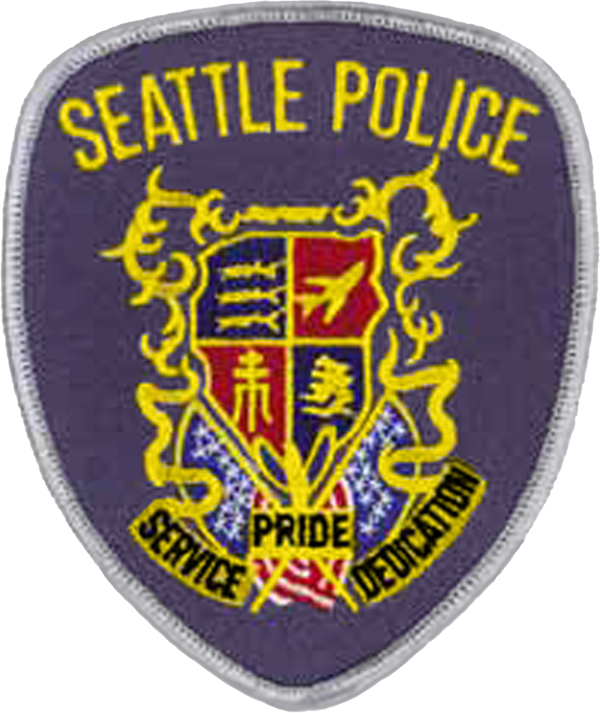The Seattle Police Department has an image problem: it doesn’t want you to see dash-cam videos of its officers behaving badly. The SPD is so adamant about preventing the public from seeing videos of on-duty SPD officers, the City of Seattle sued civil-rights attorney James Egan for requesting disclosure of dash-cam footage.
Egan says he considers the dash-cam footage essential to his clients’ defense because each case involved officer misconduct. He wanted to know whether those officers had any other questionable arrests, so he requested 36 more dash-cam videos.
The city refused Egan’s request for additional tapes, claiming a right to protect not the officers’ privacy but instead the privacy of civilians who apparently felt offended enough about perceived misconduct that they subsequently filed complaints with the Internal Investigations Unit.
“The City will not inform us who those civilians are, but asserts a blanket interest in protecting their privacy against public inquiry,” said Egan. “Even if those complaining civilians would be offended, which seems unlikely, the public’s right to know if officers are using excessive force or biased policing trumps their privacy interest.”
‘Escalating Situations Unnecessarily’
Seattle has used dash-cam videos in the past to exonerate officers accused of wrongdoing in hundreds of cases.
“The City poorly hides the real reason they don’t want these videos in the media: that the officers will be seen on video escalating situations unnecessarily, in my best guess, and people may wonder why the officers were exonerated for their alleged use of force,” Egan said.
“Of course the City uses the same videos to prosecute people in public courts, and no criminal defense attorney could raise a privacy issue there,” he continued. “In 2006 some attorneys did argue privacy interests of detainees in criminal cases, but they were rejected by the State Supreme Court. So for the City now to be concerned about the privacy interests of civilians … seems inconsistent,” he said.
‘Preventing Legitimate Inquiry’
Egan says the Seattle Police Department was indicted in 2011 by the U.S. Department of Justice for a pattern of regular, unconstitutional use of force and possible biased policing.
He says the city’s lawsuit against him is ridiculous and would be comical if it weren’t so alarming. If the city wins its lawsuit, he says, the verdict would strike a strong blow against transparency and the rights of private citizens and their attorneys to subpoena police dash-cam videos.
“If the City prevails, then apparently preventing legitimate inquiry into police procedures generally by members of the public is a reason to deny records requests in Washington, … [and].the Public Records Act is meaningless and cannot actually be used to request public documents that may include images of civilians,” said Egan.
“Police departments are capable of conducting their oversight, but that should not eliminate the public’s capacity to verify the police’s ability to police themselves,” said Egan. “I think, given technology and the Youtube generation, we can all get more bang for our taxpayer dollars. Portable video cameras on patrol cars are cheaper every new year. This allows police to be more transparent as a government function. They should not resist transparency or accountability.”
‘Police Need Oversight’
Hans von Spakovsky, senior legal fellow and manager of the Civil Justice Reform Initiative at the Heritage Foundation think tank, says even good policing requires transparency. “An arrest in the public arena can and should be filmed because it can exonerate the officer if he’s later accused of wrongdoing,” he said.
“I think part of the problem with incidents like these—and they’re happening all across our country—is the law has not caught up with the technology,” said von Spakovsky. “There have been no changes in the law by certain legislatures, and they need to take into account the advances in technology.”
Tim Lynch, director of the Project on Criminal Justice at the Cato Institute think tank, agrees with von Spakovsky, noting police departments need monitoring. “History shows that police need oversight, whether it’s from the city councils or the courts. Otherwise, the abuses will continue,” he explained.
Lynch says laws prohibiting citizens from filming police officers should be changed. “These are public servants performing their duties in public, so they should always be allowed to be filmed.”
Smart Phone Revolution
Meanwhile, there is a revolution occurring with smart phone technology and the Internet, says Lynch. “In the past, before this technology became so widely available, it would be the officer’s word against the accuser’s,” he said. “The judge would always give the police officer the benefit of the doubt, and the judgment always fell with the officer,” says Lynch. “Now, with the increasing amount of misconduct occurring and the amount of videos of officers caught in the act, a shift in opinion has occurred over the last 10 to 20 years.”
Egan added: “Police and government are necessary but should not be a necessary evil. Officers will make human errors, and the public is entitled to review and consider those errors and whether they were handled internally in an appropriate way. It is a waste of taxpayer dollars to obstruct requests for public documents and then spend legal energy suing the lawyer who made those requests,” he said.
Kenneth Artz ([email protected]) writes from Dallas, Texas.



